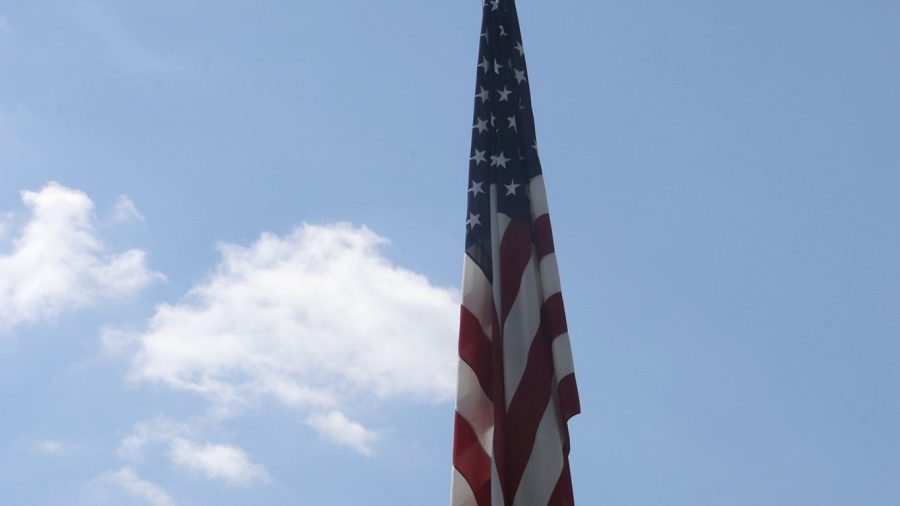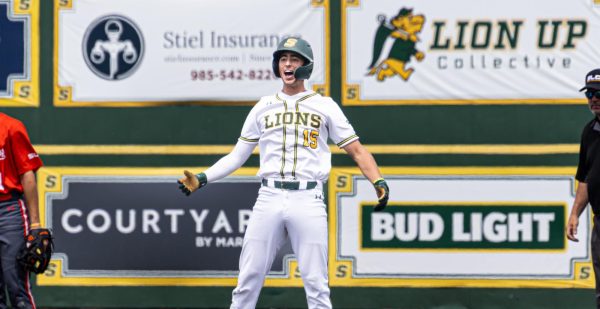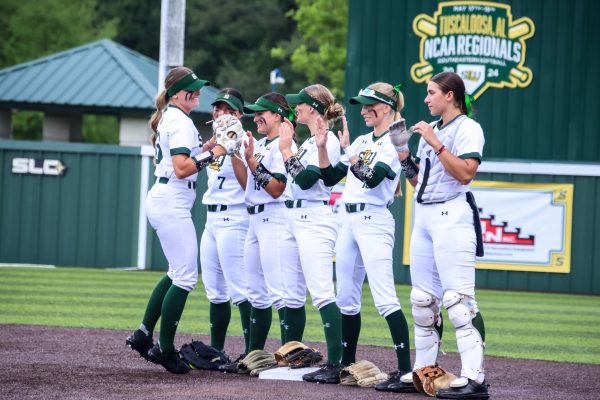Virtual Conventions mark official start of unprecedented 2020 Election Cycle
The Democratic and Republican National Conventions were both pushed back from the original dates due to COVID-19. Most of the speeches were delivered over a virtual format. This presidential election will be the first ever election with mail-in votes
With the conclusion of both the Democratic and Republican National Conventions and the official nominations of Former Vice President Joe Biden and Incumbent President Donald Trump, the 2020 Presidential Election race officially began.
Both the Democratic National Convention, originally scheduled to occur between July 13-16 in Milwaukee, Wisconsin, and the Republican National Convention, originally scheduled to be held in Charlotte, North Carolina from August 24-27, were scaled back due to current COVID-19 restrictions.
Most speeches for each respective convention were delivered remotely. Democratic Presidential Nominee Joe Biden delivered his acceptance speech remotely in Wilmington, Del. on August 20 while Republican Nominee and Incumbent President Donald Trump gave his acceptance speech outside of the White House in front of an audience of Republican leaders.
Peter Petrakis, associate professor of political science, believes that both conventions were equally as effective as in-person conventions would be.
“Objectively, if I had to compare the two, I would give the Democrats the edge but we’ll have to wait to see how the polls shake out in the next few days and up to a week,” said Petrakis. “In our contemporary moment, as with almost everything, it hinges on partisan perspective.”
Petrakis was impressed with the aesthetic appeal of the Democratic National Convention.
“As a scholar, the Democrats set the stage with ‘slick’ or excellent virtual visuals—they did not come off as tinny zoom calls—and they emphasized social distancing,” shared Petrakis. “However, speaking without a crowd caused some problems for a few speakers.”
The highlight of the DNC, Petrakis believes, was Biden’s acceptance speech.
“I think the big story is how well Biden performed,” said Petrakis. “Many pundits have said it was the speech of his life and that his decency showed through.”
Travis Thompson, a junior industrial technology major and vice president of the SLU College Republicans, enjoyed his party’s virtual convention.
“I think virtual is fine,” said Thompson. “I believe the RNC was the best ever done. It was truly amazing.”
Petrakis also believes that the RNC has its moments.
“The ‘narratives’ were tighter than the typical Trump administration’s messaging,” said Petrakis. “They stressed how dangerous the times are and highlighted the ‘dangers’ of a Biden administration.”
A surprising component of the RNC for Petrakis was the fact that President Trump appeared several times before his acceptance speech.
“Normally, nominees (even incumbents) stay in the background until their big speech,” shared Petrakis. “I think it is fair to say that the convention was not targeted at expanding the electorate but rather inspiring his ‘true believers’ or ardent supporters. Trump’s speech itself was rambling and odd, but how much that hurts him will take time to tell.”
Typically, candidates experience a bump in national polling after their respective conventions. Petrakis believes that it is too early to tell if either candidate experienced a post convention bump,
but he does not expect to see one.
“Probably because of heightened partisanship, and the fact that there aren’t that many undecided voters anymore, big ‘bounces’ in the polls are unlikely,” said Petrakis. “I don’t think either convention changed the landscape to any serious degree. The big take-away is that they have a very different approach. The Dems are taking Covid seriously and the GOP is pushing a ‘put your head down and muddle through’ approach.”
Reflecting on the race as a whole, Petrakis believes it is difficult to predict how the ongoing COVID-19 Pandemic will affect the result.
“Seemingly, Trump is finding it hard to revive the enthusiasm he had in 2016– he enjoys and strives on raucous crowds and adoration — whereas Biden is better in ‘controlled’ settings,” shared Petrakis. “As for the presidential election, it will hinge on turnout. How safe will we feel to congregate? Who will be willing to actually turnout to vote on Nov 3rd? How much absentee and mail-in-voting will there be? Again, we are in uncharted waters and will have to wait and see.”
Your donation will support The Lion's Roar student journalists at Southeastern Louisiana University.
In addition, your contribution will allow us to cover our annual website hosting costs.
No gift is too small.

Dylan Meche is a Political Science major from Baton Rouge and serves as Opinions Editor. He has been a reporter for The Lion's Roar since August of 2019....

Symiah Dorsey is a communication major from Laplace and serves as Editor-in-Chief. Raised in Europe, Symiah is an avid lover of languages, traveling and...







Morgan Cowley • Sep 8, 2020 at 2:27 pm
The caption saying that this election will be the first-ever election with mail-in voting is inaccurate. Its been around at least since the 80s.